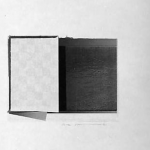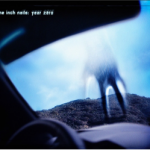fictions present
The New, New, New Philology
In this review of Rethinking the New Medievalism, Matt Cohen ponders the significance of philology's ongoing period of "reflection, [...] refraction, and revisitation." Against the backdrop of contemporary shifts in the humanities, more generally, Cohen sees opportunities for medievalists to intervene, bringing with them both clarity and innovation to fields in a state of fluctuation.
An Aesthetics of the Unsaid

Andrew Lindquist reviews Michael LeMahieu's Fictions of Fact and Value, examining the influence of logical positivism on American literature of the postwar era.
The Primacy of the Object
In his review of Martin Paul Eve’s Pynchon and Philosophy: Wittgenstein, Foucault and Adorno, Julius Greve situates this new book on Pynchon within the upheavals produced by speculative realism and contemporary discourses on materialism. In doing so, Greve reminds us of what was always already the case: the literary-philosophical relevance of Pynchon, which turns out to be all the more inescapable in contemporary political climates.
Revealing Noise: The Conspiracy of Presence in Alternate Reality Aesthetics

Adam Pilkey argues that the ARG Year Zero's use of "revealing noise" allows and encourages the audience to help in the building of the narrative by becoming participants in a conspiracy theory within the ARG. Pilkey argues that "The Presence" found in the Nine Inch Nails album and corresponding ARG, Year Zero, symbolizes and denies a truth, which in turn provides a means that furthers the resources that constructs conspiracy theories in this alternate reality.
Riposte to Curtis White’s “The Latest Word”
Kate Pullinger's response to Curtis White's "The Latest Word" ploughs ahead. She tells us that writers today may fear for the future of literature but they keep writing, they go on, they must go on.